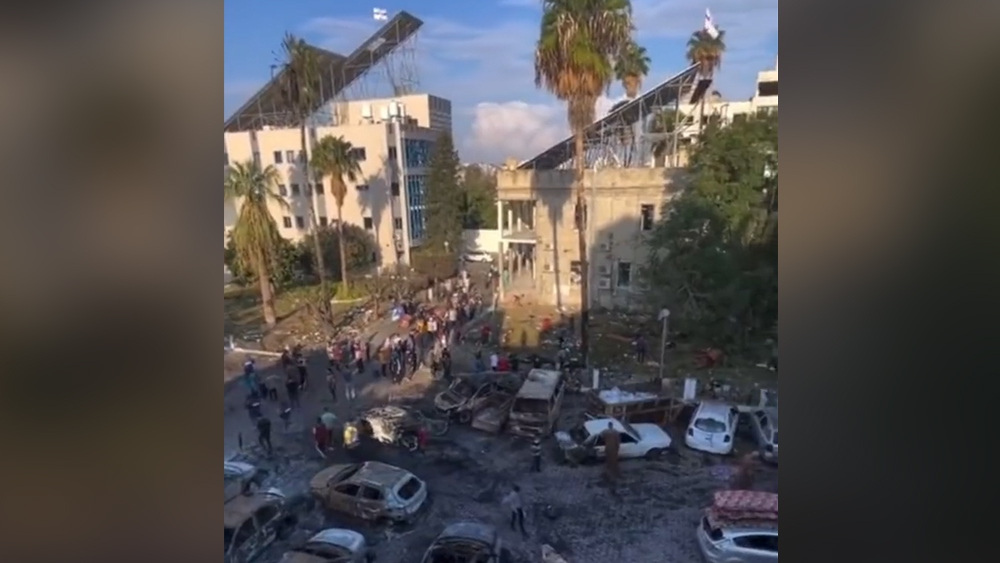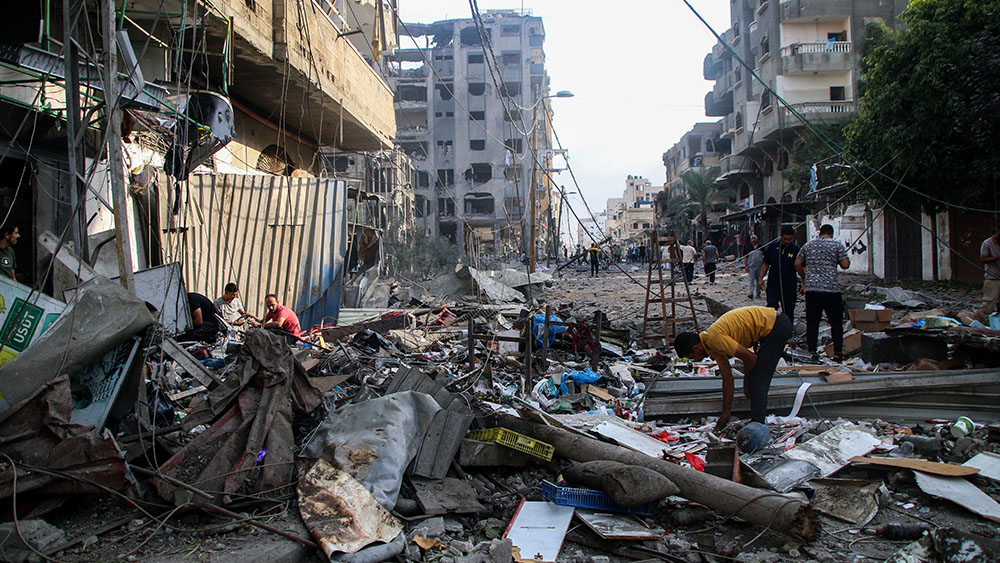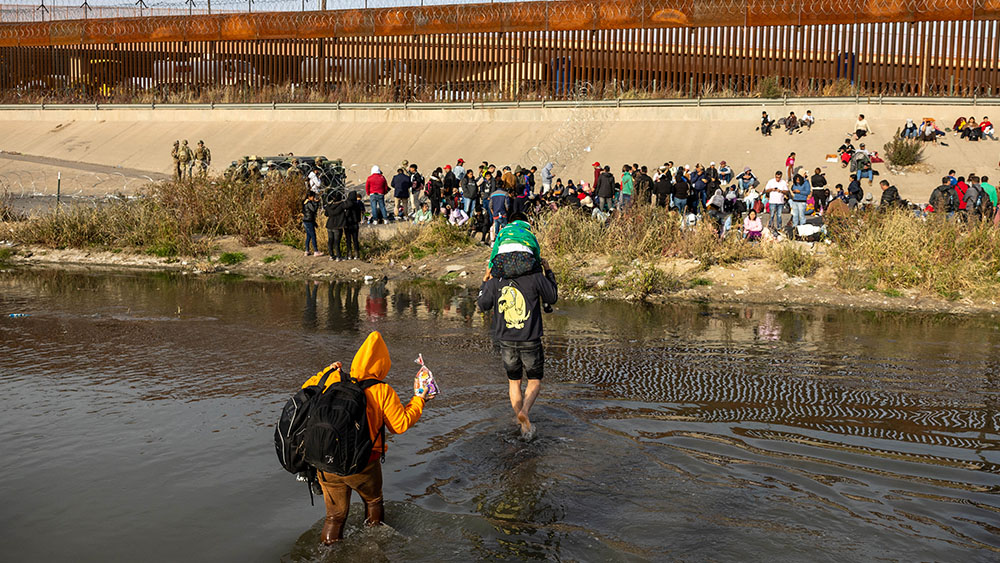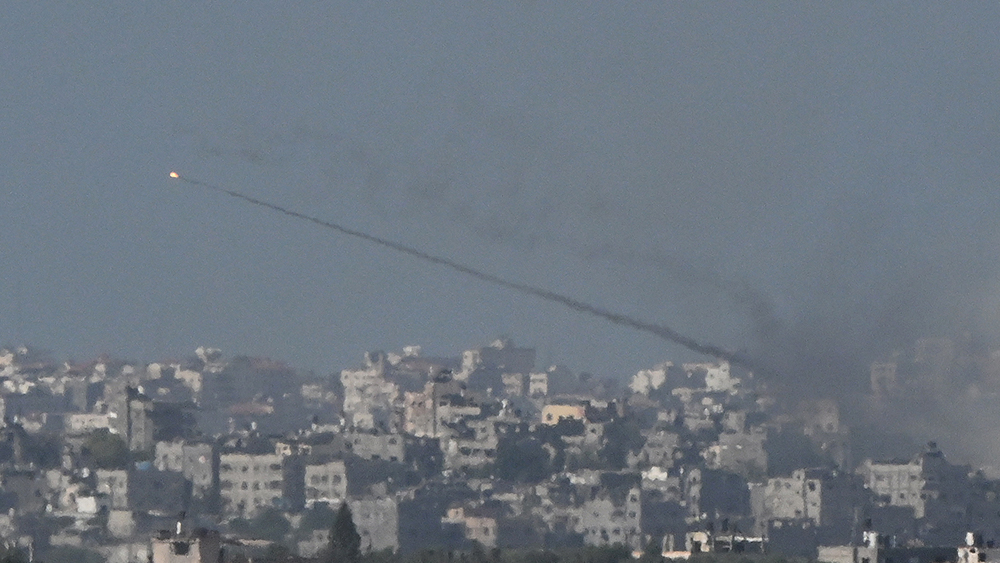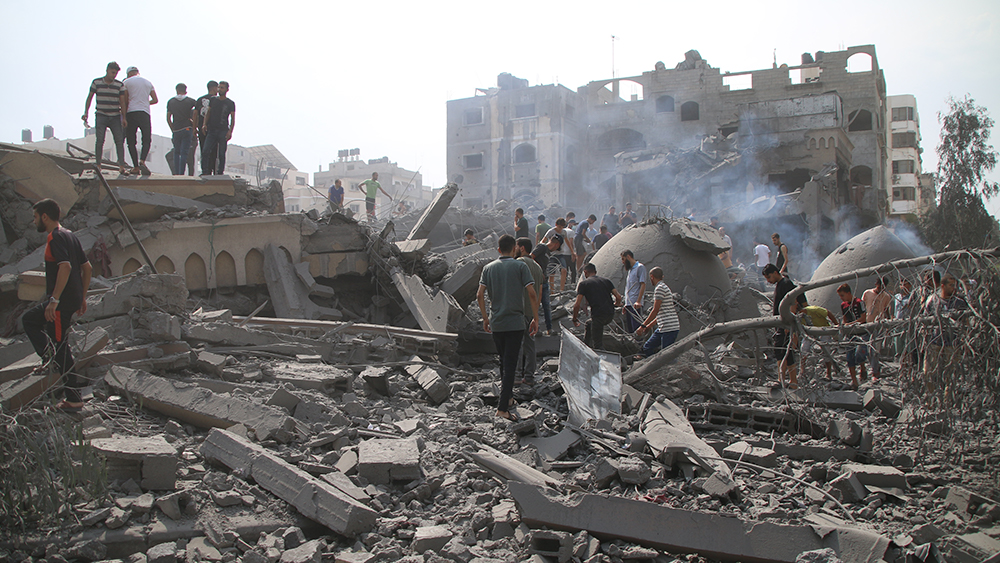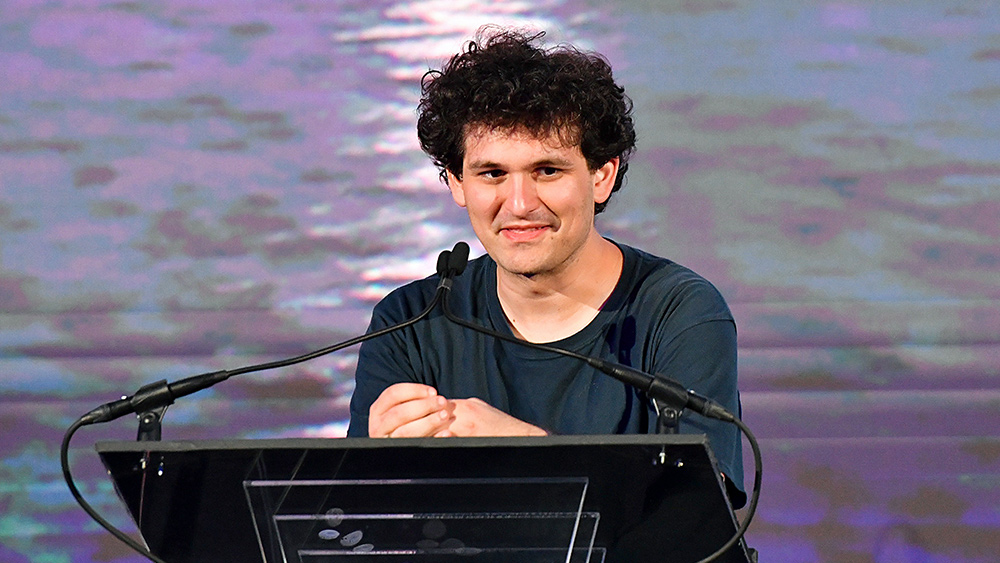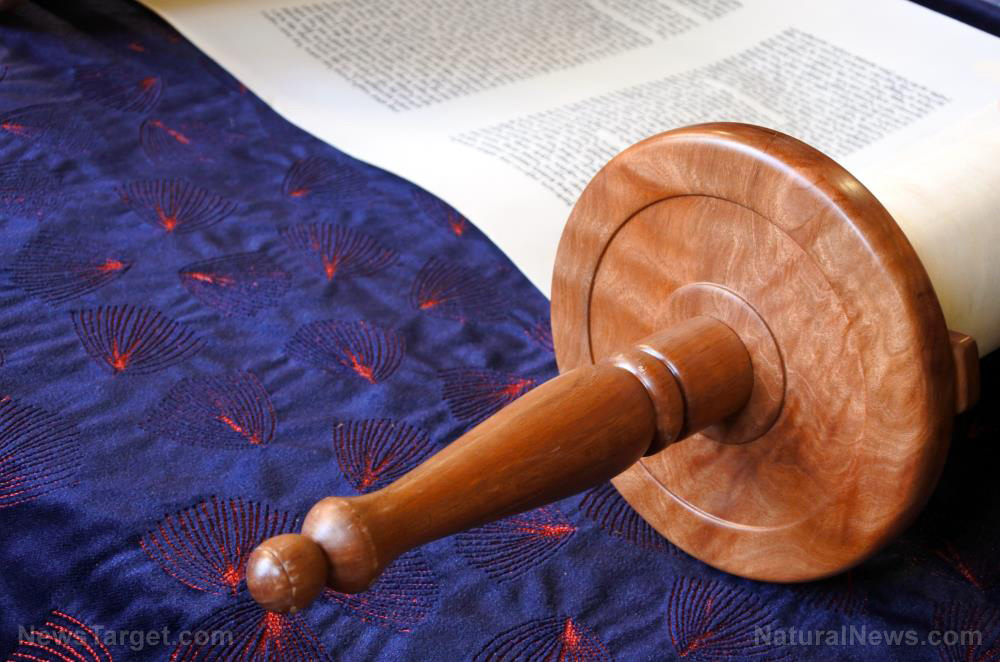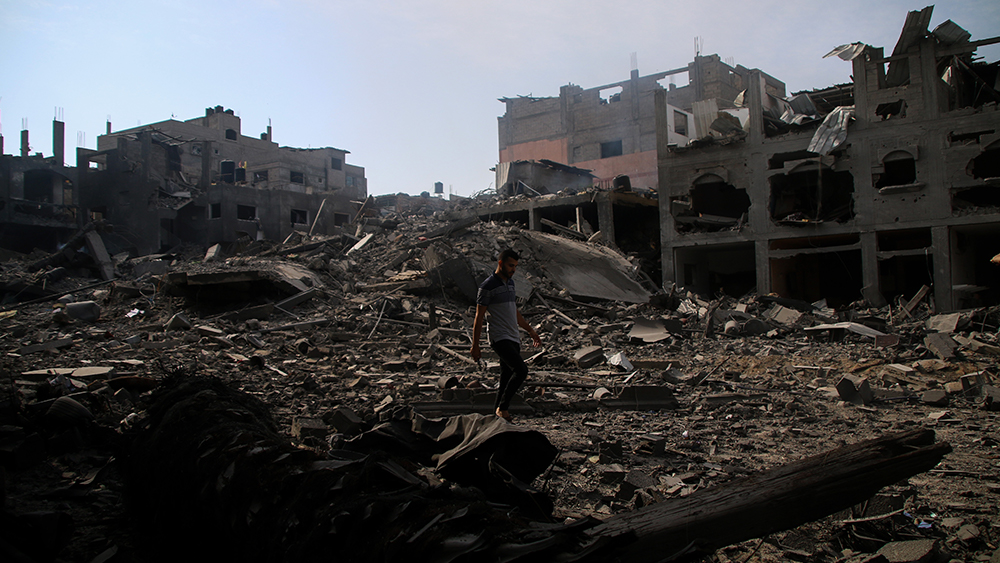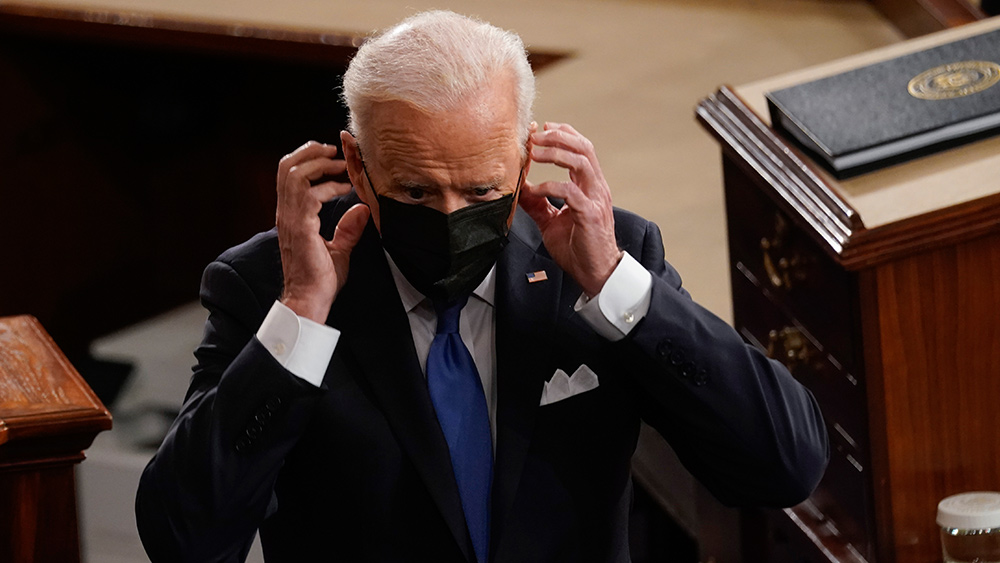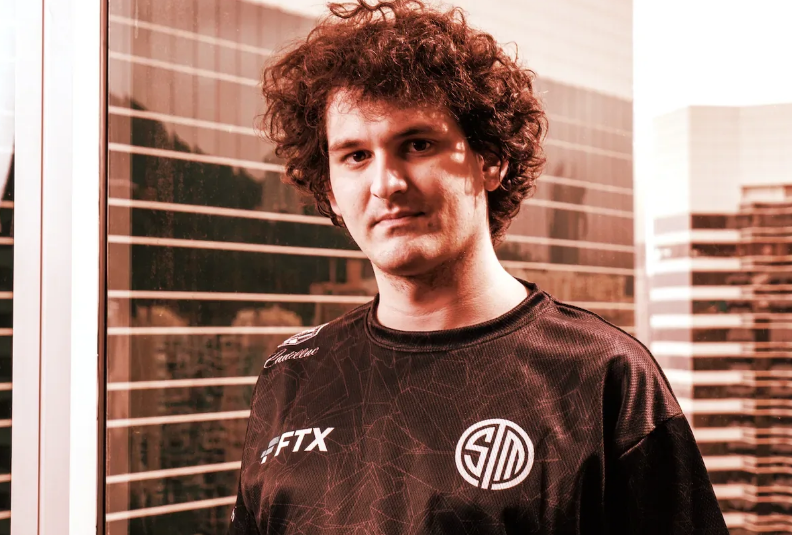Al-Ahli hospital bombing: Israel performing its usual post-atrocity routine
10/20/2023 / By News Editors
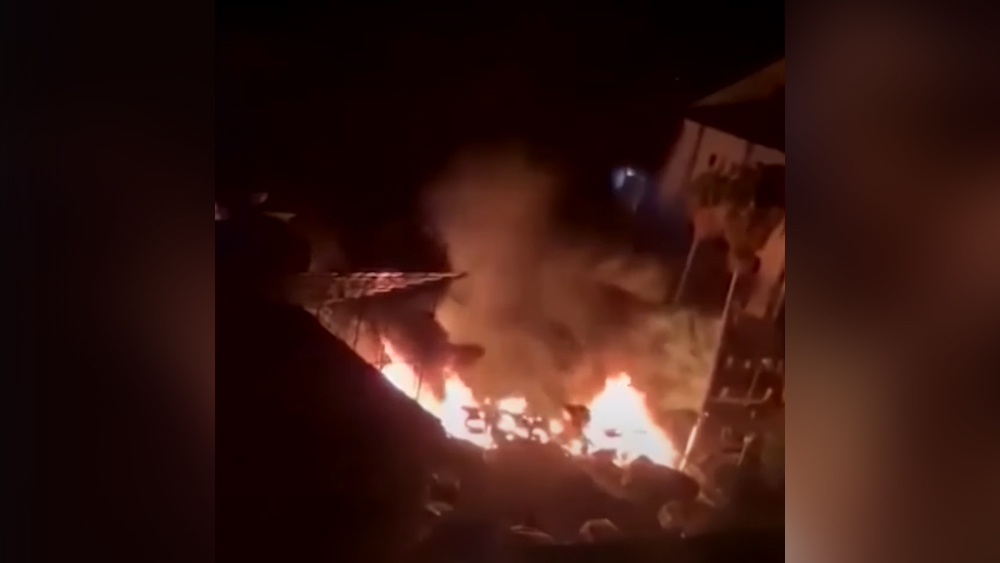
On the evening of Tuesday, October 17 a strike on Gaza’s al-Ahli Arab Hospital, often called the Baptist Hospital, killed at least 500 people, mostly children and women.
(Article by Mohamad Elmasry republished from AlJazeera.com)
The scenes from the massacre, as described by witnesses and displayed in videos broadcast by news networks, were as grisly as can be imagined.
Images revealed body parts scattered across the hospital grounds and doctors performing emergency surgeries in corridors without anaesthesia. Video footage from inside the hospital showed Palestinian parents screaming and crying at the side of their dead children.
Palestinian officials blamed the explosion on one of the many Israeli bombs dropped on Gaza since October 7.
Israel, meanwhile, has predictably claimed that a misfired Palestinian rocket was responsible for the massacre at the hospital.
Israel’s response to the hospital bombing – a war crime under international law – is consistent with its usual post-atrocity routine.
The routine goes something like this: Israel commits a human rights atrocity, immediately denies having anything to do with it, says it has solid evidence that Palestinians committed the crime, and then just waits to see if someone manages to prove what really happened. If it eventually becomes clear that Israel did indeed carry out the atrocity, it silently accepts responsibility, but by then, the world’s focus has already moved on to other matters.
Israel performed this exact routine just last year, after it murdered Palestinian-American journalist and Al Jazeera veteran Shireen Abu Akleh.
Immediately after the May 2022 murder, then-Israeli Prime Minister Neftali Bennett blamed Palestinians for “throwing blame at Israel without basis.” At the time, Bennett said, “according to the information we have gathered, it appears likely that armed Palestinians – who were firing indiscriminately at the time – were responsible for the unfortunate death of the journalist.” Then-Defence Minister Benny Gantz stated confidently that “no [Israeli] gunfire was directed at the journalist,” and that the Israeli army had “seen footage of indiscriminate shooting by Palestinian terrorists”.
Later in 2022, though, and following multiple independent investigations proving without a shadow of doubt that Abu Akleh had been killed by Israeli fire, the Israeli government finally admitted that it was a “high possibility” that it was an Israeli bullet that killed the journalist wearing a clearly marked press vest and helmet.
Nevertheless, Israel’s initial denials were picked up prominently by Western media outlets, casting significant doubt over Israel’s culpability in the murder.
The same routine was also followed in 2003, when Israel murdered 23-year-old American student Rachel Corrie. Corrie was crushed by an Israeli bulldozer as she tried to prevent the illegal demolitions of Palestinian homes. Immediately after killing Corrie, the Israeli army had said it was an unfortunate accident caused by Corrie herself.
In September 2000, during the second Palestinian intifada, the Arab world was moved by images of a 12-year-old Palestinian boy, Mohammed Al-Durrah, crying and hiding behind his father, Jamal Al-Durrah, before ultimately being shot and killed by an Israeli sniper.
Mohammed’s murder at the hands of the Israeli army was clearly caught on video. But even this did not prevent Israel from following its usual routine and trying to deflect responsibility.
In the immediate aftermath of the child’s murder, Israeli officials claimed that it was “significantly more likely that Palestinian gunmen were the source of the [gunfire that killed Al-Durrah].”
Over the years, the same scenario played out over and over again as Israel repeatedly committed atrocities, denied responsibility and walked back its baseless denials only when the evidence to the contrary became too compelling and the world’s attention had moved elsewhere.
This course of action proved beneficial for Israel as it bought it precious time in the court of public opinion. With Israeli voices dominating Western media reports, this post-atrocity routine helped Israel create a contested media narrative, and cast doubt over clear evidence of its crimes and excesses.
In this sense, the Western media coverage of and narrative on the al-Ahli Hospital bombing has been predictable.
There is already a large body of academic research suggesting mainstream Western news media sympathise with Israel and largely ignore or downplay its human rights violations against Palestinians.
Over the first 10-days of the current crisis, Western media behaved as anticipated. Outlets privileged Israeli point of views, suppressed Palestinian voices, and repeatedly talked of “Israeli self-defence” and “Palestinian aggression”.
In the days before the hospital bombing, BBC News ran multiple reports about alleged Hamas tunnels under public buildings, including schools and hospitals. It doesn’t need much explaining how this kind of uncritical repeating of Israeli propaganda by Western media organisations helps Israel perform its deceptive post-atrocity-routine effectively.
When the dust settles, independent investigations will inevitably show that Israel, which had already been bombing across Gaza’s residential buildings, mosques, banks, and universities, and had already killed thousands of Gaza Palestinians, including 750 children, is responsible for bombing al-Ahli Hospital.
And when the dust settles, Western media likely won’t give as much light to Israel’s guilt as it did to its denials.
Read more at: AlJazeera.com
Submit a correction >>
Tagged Under:
atrocity, biased, big government, conspiracy, deception, democide, Gaza, genocide, Hamas attack, humanitarian, insanity, Israel, lies, mainstream media, national security, news cartels, outrage, propaganda, terrorism, violence, war on Israel
This article may contain statements that reflect the opinion of the author
RECENT NEWS & ARTICLES
COPYRIGHT © 2017 LIES NEWS

